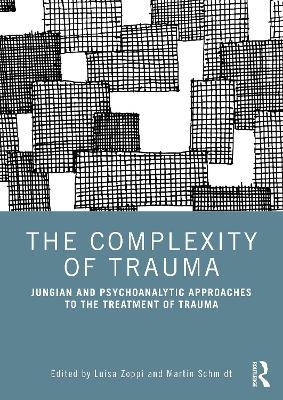
The Complexity of Trauma
Routledge (Verlag)
978-1-032-28700-3 (ISBN)
Dedicated to Daniela Eulert-Fuchs, this important volume offers a broad and in-depth overview of how to understand and treat trauma from a Jungian perspective, written by internationally recognized experts in the field of Jungian and traditional psychoanalysis.
It applies C.G. Jung’s concept of the ‘complex’ and his understanding of splitting processes of the psyche to trauma. Traversing a range of pertinent themes including archetypal defences, primary narcissistic wounding, somatic symptoms, symbolic representation and processing, transference and types of memory, the book features a variety of voices from different theoretical perspectives, with each contributor offering clinical examples and lessons from their experiences working with patients. Chapters cover a wide range of clinical phenomena including early relational trauma, dissociative states, the Self-care System, unconscious communication, embodied countertransference, eroticization, PTSD, creativity and cultural/social issues.
The Complexity of Trauma is key reading for psychoanalysts and therapists as well as for researchers, students, and trainees in schools of psychodynamic psychotherapy and those interested in working with trauma.
Luisa Zoppi is a Clinical Psychologist and Jungian Training Analyst (Italian Association of Analytical Psychology [AIPA]). Since 2015, she has been teaching Theory of Complexes, Transcendent Function and Dynamics of the Individuation Process at AIPA. Since August 2019, she has been a member of the Executive Committee of the International Association for Analytical Psychology (IAAP). Martin Schmidt is a Jungian Training Analyst (Society of Analytical Psychology in London) who lectures and supervises widely around the world. He has worked for over 20 years as a psychologist in psychiatric rehabilitation, was former Honorary Secretary of the IAAP and its Regional Organiser for Central Europe.
Introduction 1. Feeling-Toned Complexes and the Treatment of Trauma: A Jungian Perspective 2. Trauma and the Inner World: The Self-care System as a Resistance to Healing Part 1: Early Relational Trauma 3. Countertransference in Working with Early Relational Trauma: In Dialogue with the Body 4. The Body Roots of Traumatic Experiences: From Un-symbolized Body Memory to Bodily Reverie 5. Working with Early Relational Trauma and Borderline States: The Role of Unconscious Communication Part 2: Dissociative Processes in Trauma 6. PTSD: Feeling-Toned Complexes and the Twilight of Self-Awareness 7. Trauma and Dissociation: A Patient-Clinician Psychodynamic Perspective 8. Eroticized Trauma and its Manifestations in the Transference 9. The Black Sun of a Transgenerational Trauma: Dissociative Processes, Affects and the Development of the Symbolic Function Part 3: Sociological and Analytic Aspects of Trauma 10. Social Trauma 11. New Evolutionary Perspectives between Trauma and Resilience: Dysregulated and Con-fused 12. Working with Cultural Trauma: The Archetype of the Wounded Healer in a Multicultural Analytic Couple 13. A Jungian Approach to Working with the Trauma of Migrants: Waves, Tempests, Harbours Part 4: Poetic and Creative Methods 14. Myths, Trauma and the Neurobiological Psyche 15. The Role of Memory and Creativity in the Healing Process of Trauma 16. Understanding Trauma, Suffering, and Mourning from the Knowledge of the Heart
| Erscheinungsdatum | 17.09.2024 |
|---|---|
| Zusatzinfo | 3 Halftones, black and white; 3 Illustrations, black and white |
| Verlagsort | London |
| Sprache | englisch |
| Maße | 174 x 246 mm |
| Gewicht | 680 g |
| Themenwelt | Geisteswissenschaften ► Psychologie ► Psychoanalyse / Tiefenpsychologie |
| Medizin / Pharmazie ► Medizinische Fachgebiete ► Psychiatrie / Psychotherapie | |
| ISBN-10 | 1-032-28700-4 / 1032287004 |
| ISBN-13 | 978-1-032-28700-3 / 9781032287003 |
| Zustand | Neuware |
| Haben Sie eine Frage zum Produkt? |
aus dem Bereich


